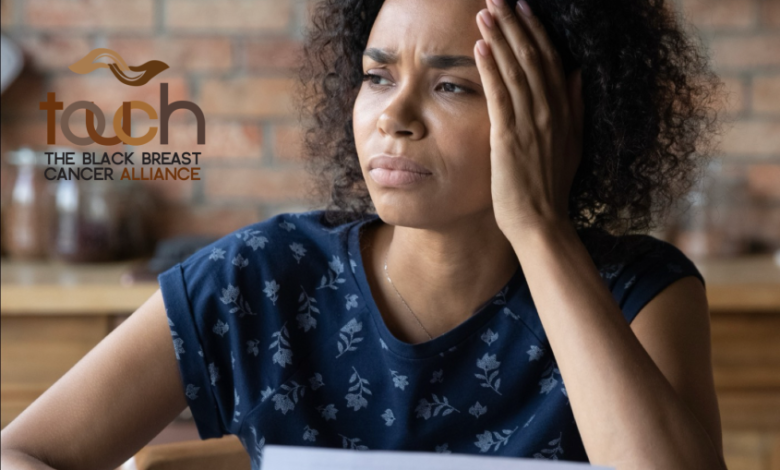What Is Going To Change During Black History Month 2024?


It’s February and here we are with another Black History Month upon us. At least this year, it’s leap year so we have an extra day to what we know as the shortest month of the year. While we appreciate the focus on Black people throughout these 29 days, the harsh reality is that we will still be Black on March 1st. And unless some miraculous science happens in the next 29 days, the dire state of Black Breast Cancer will still be the same on March 1st, too.
Let’s take a closer look at the current state of Black Breast Cancer, examining 20 facts that highlight the gravity of this health issue:
- Black women are more likely than white women to die of breast cancer at any age across any sub-type
- Black women have the lowest 5-year relative breast cancer survival rate compared to all other racial/ethnic groups for every stage of diagnosis and every breast cancer subtype
- Black women diagnosed with breast cancer have a 41% higher mortality rate than white women
- Black women diagnosed with breast cancer have a 39% higher mortality rate than white women
- Black women diagnosed with breast cancer have a 71% higher relative risk of death than white women
- Black women under the age of 35 are twice as likely to get breast cancer than white women and three times more likely to die of breast cancer
- Black women ages 20 to 29 have a 53% increased risk of breast cancer compared with white women of the same age group.
- Black women ages 30 to 39 have a 15% greater risk of breast cancer compared with white women of the same age range.
- Black women are three times more likely than white women to get Triple Negative Breast Cancer which has the highest mortality rate of all breast cancers. It has the least treatment options and the worst outcomes. There is a 38% increased risk for Black women to be diagnosed with metastatic TNBC than white women.
- Black women with private insurance are 60% more likely to die of breast cancer that white women with private insurance.
- Black women residing in high socioeconomic neighborhoods are 126% more likely to die than white counterparts residing in similar neighborhoods.
- 21% of Black women with breast cancer don’t survive 5 years past their diagnosis, compared to only 8% of white women.
- The physiology of Black women has not been a consideration in clinical trial research. The average Black women participation rate for current breast cancer clinical trials is less than 3%.
- Black women have 44.9% higher volumetric breast density than white women. Women who have the highest breast density have a 4 to 6 times greater risk for breast cancer compared with women with lower breast density.
- Black women are diagnosed with de novo metastatic breast cancer at a 58% higher rate than white women.
- Black women are three times more likely to develop cardiovascular disease after breast cancer.
- Black women are more likely to have comorbidity at breast cancer diagnosis compared with white women. Having a comorbidity can limit breast cancer treatment options and breast cancer treatment can exacerbate underlying health conditions.
- Black women with type 2 diabetes had an increased risk of developing ER-negative breast cancer and 50% of Black women develop Type 2 diabetes in their lifetime.
- Black women are diagnosed later, when treatment is less likely to be effective.
- We don’t have clearly defined breast cancer screening guidelines for Black women.
This situation is tragic and unacceptable. Despite this, we remain committed to sparking hope and making a difference during February. At TOUCH BBCA, we pledge to:
- educate and empower Black women where they live, work, play, pray and slay by hosting events in Atlanta, Austin, DC, New York, Oakland, and Philadelphia
- nurture partnerships with Black women-led, grassroots breast cancer support groups and organizations in the 50 states
- recruit 1000 Black women into our When We Tri(al) trial search portal
- bring Bexa scanning to young women that are not eligible for mammograms
- bring Unite For HER benefits to clinical trial patients
- embrace our 15 HBCU interns with love and information so they can bring relevant messaging to their families and peers
- continue regular programming on our web series on the BlackDoctor.org Facebook Page: The Doctor Is In every Wednesday at 6pmET, Pink Table Talk on February 25 at 3pm ET and Love Your Bones on February 4th at 3pm ET.
- bring Blesstie Love via TOUCH Talk on Saturday, February 3rd at 11am ET and TNBC Talk on Tuesday, February 6th at 8pm ET.
Join us in our mission to make these 29 days count and work towards a future where Black Breast Cancer is a thing of the past.




